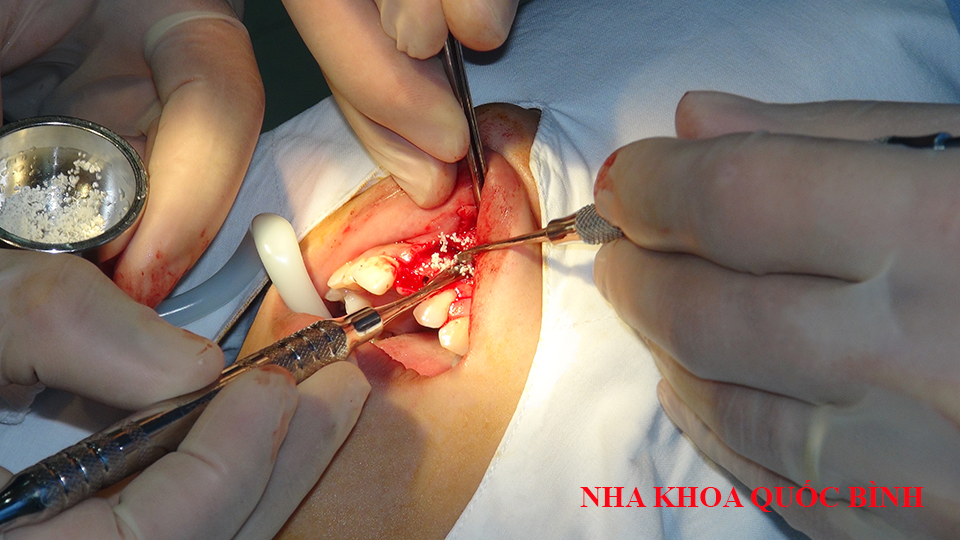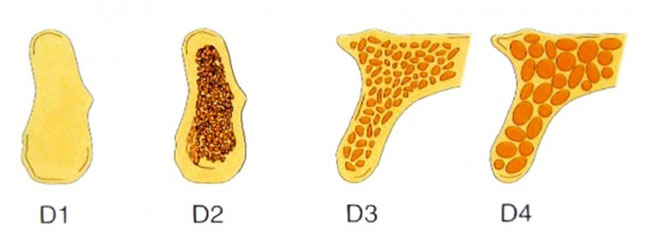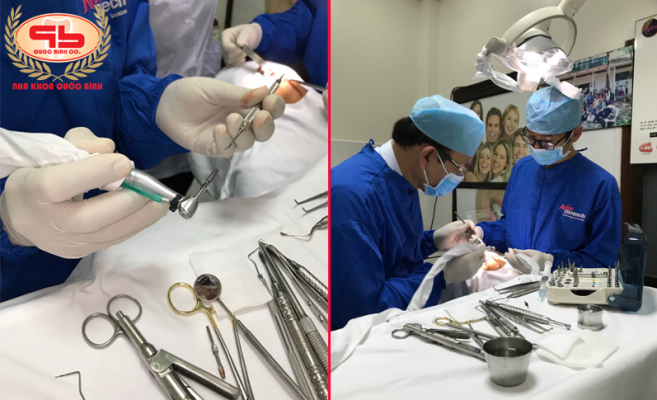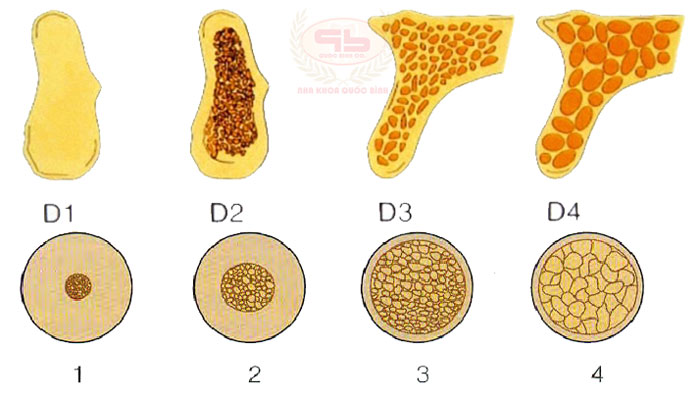Dental implants are the most effective method of restoring lost teeth today. However, not every situation, you can perform transplant immediately. There are many factors that govern this, including whether the jaw bone standard is suitable for implants.
In normal cases, after implantation of the titanium post into the jawbone, it will take 3-6 months for the bone to grow and integrate into the implant. So how important is the jaw bone standard?
Implant standards now go with jaw bone standard
In fact, the smallest implant size has a length of 6.0mm and a diameter of 3.0mm. Therefore, the required size of the jaw bone at the treatment area should be greater than the implant size.
For bone conditions that are not conducive to implantation, such as bone loss (bone thickness lower than implant size respectively), bone grafts are required. And this situation usually happens to patients with long-term tooth loss or thin bone thickness congenital.

To know exactly that, Quoc Binh Dental Clinic used high-tech analytical software combining 3D scans with Conebeam CT. If the evaluation results do not match the jaw bone standard need for the implantation, the doctor will have a special treatment plan.
What is the jaw bone standard for dental implants?
Bone quality is currently assessed through the HU index (Hounsfield: rigidity assessment). And so, the human jaw bone is divided into four levels: D1, D2, D3, D4.
At each level corresponds to different jaw bone standard:
- D1: Very thick bone (HU> 1250)
- D2: solid bone (HU index 850-1250)
- D3: Moderate bone (HU 350-850)
- D4: spongy bone (HU index 150-350)

In these four levels, the most appropriate jaw bone standard for implants is the D2 and D3.
D1 and D4 belong to the situation need for treatment of highly qualified physician
- D1 is a very dense bone, so it shows that the treatment area has little blood vessels. Therefore, the healing time and cell growth associated with dental implants will be longer.
- D4 is spongy bone, too porous bone will not have good background to help Implant stand firm. Therefore, it is necessary to use more advanced techniques in the implantation process to increase the bone density and increase the stability of the implant.
When you fall into any particular situation, you will also be consulted by a treating physician. If you need a bone graft or any implants-related procedure, you are carefully advised and confirmed to agree to follow the treatment plan. Doing this seriously will help you to be mentally prepared to be able to cooperate throughout and deliver the best results.

If you have any questions and need advice, please contact Hotline 0914 83 99 66 to make an appointment.
Or directly to Quoc Binh Dental Clinic in Vung Tau:
19 Pham Hong Thai str., Ward 7, Vung Tau City.
28 Le Loi str., Ward 4, Vung Tau City.
Online page: https://www.facebook.com/nhakhoaquocbinh/

